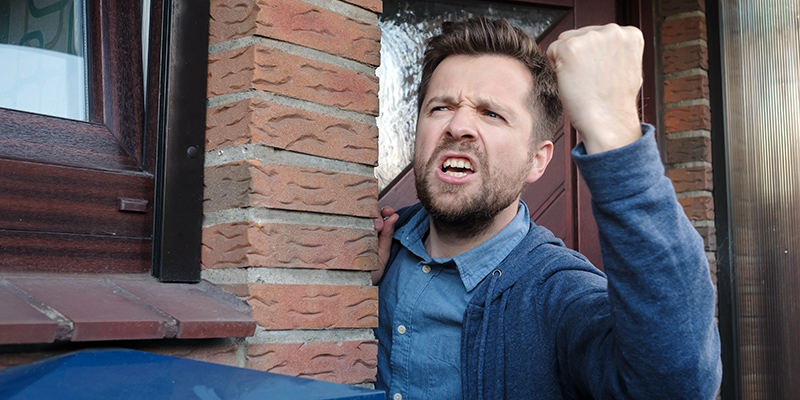HOA disputes are a common occurrence in planned communities. Neighbors will often butt heads over many different things. Sometimes, homeowners will even fight with the HOA board members. HOAS need to know how to handle these disputes the right way.
Internal Process: HOA Dispute Resolution Policy
In many communities, the governing documents, such as the bylaws, CC&Rs, and rules and regulations, may outline procedures for an HOA’s internal process for disputes. For example, the method may include an informal meeting between the homeowner and the HOA board. In HOA neighbor disputes, the board often acts as an intermediary.
In addition, some states have legislation that includes processes to resolve an HOA dispute. For instance, California’s Civil Code Section 5930 contains anti-lawsuit legislation. It requires HOAs and their members to undergo alternative dispute resolution measures before engaging in litigation. Indiana also has a new HOA statute, HEA 1286, that requires homeowners and HOAs to pursue a formal grievance process. The parties can only file lawsuits if the formal process is unsuccessful. When these provisions exist, HOAs must include them in their internal policy for resolving HOA disputes.
Unfortunately, not all governing documents and HOAs have internal dispute resolution policies. In such cases, adopting one in case conflict arises would be better. Here is a general HOA dispute resolution guideline communities can adopt.
1. Receiving Complaints or Appeals for Dispute Resolution
The process often begins when the board receives a written request for dispute resolution or HOA intervention. If the board receives a verbal complaint, they may choose to document it to keep a record of all the events. HOA board members can also require the members to submit requests in writing to formalize the process and ensure a record of all disputes.
2. Finding the Facts
 The HOA board should assign someone to investigate the complaints received. This person may be a board member or other volunteer. If the dispute is between a homeowner and the HOA board, the person assigned should be a neutral third party to avoid conflicts of interest. They can appoint the HOA manager or even the homeowner association attorney.
The HOA board should assign someone to investigate the complaints received. This person may be a board member or other volunteer. If the dispute is between a homeowner and the HOA board, the person assigned should be a neutral third party to avoid conflicts of interest. They can appoint the HOA manager or even the homeowner association attorney.
Regardless, this person’s job will be gathering information about the dispute. It should be done promptly so the issue resolves quickly. The person in charge can do this by interviewing the two parties involved in the dispute. They can also collect information from other sources like event witnesses or CCTV footage, if necessary. Moreover, they should document and sort all the files so the board can review them properly.
3. Deciding Whether to Intervene
The board should arrange a meeting where the person appointed will present all the information they acquired. During the meeting, the board can decide whether it needs formal intervention from the HOA. A lawyer for HOA dispute resolution can also attend to provide legal counsel.
After the review, the board will provide a written notice of their decision. For example, they may write a violation notice to the offending homeowner. This notice may include a warning, fines, or restrictions of rights and privileges.
The decision may be left to a neutral third party if the dispute is between the board and a homeowner. Again, this can be the HOA dispute attorney or HOA management company. This person can offer an unbiased resolution that considers both sides. Likewise, they can write this at the end of the meeting.
4. Negotiation
Some HOA disputes need more careful attention. In these cases, the board can meet with the parties involved to hear all sides of the story. They can also present any remedies they might consider to the affected homeowners.
The board needs to remain neutral and objective during these negotiations. The goal must be to resolve the dispute. Ideally, all parties will agree at the end, which the board will put into writing. The neighbors can sign this agreement to acknowledge their consent.
Alternative Dispute Resolution
Homeowners association disputes may not always end with a simple negotiation. When the internal process fails, it may be time to use Alternative Dispute Resolution (ADR). This allows the HOA to resolve an issue with outside help.
 Mediation
Mediation
The first ADR the association can consider is mediation. This involves a third party that listens to both sides of the story. They will mediate, assisting both parties in finding a compromise. However, the mediator cannot force either side to resolve the dispute. The parties must come to a resolution together.
Arbitration
In arbitration, the third party also listens to both sides of the story. They can review the arguments and evidence either side presents. However, unlike mediation, the arbiter decides how to resolve the dispute. If the arbitration is mandatory, the arbiter’s decision is often final. The parties cannot take the dispute further and file a lawsuit just because they dislike the decision.
Dispute Resolution via Litigation
ADR mechanisms exist to prevent HOA disputes from escalating and being brought to court. However, there are times when this does happen within the HOA community. Homeowners may sue their neighbors, or the litigation may be between the homeowners and the HOA board.
In these cases, the court examines the evidence and decides the resolution. They may order specific performance so the homeowner will abide by the rule laid out. The court may also impose injunctions wherein the HOA cannot engage in a specific activity.
While litigation may be effective at resolving disputes once and for all, they are generally not ideal for anyone involved. That’s because lawsuits are long, tiring, and expensive. Hence, litigation must be a last resort for resolving HOA disputes.
Promoting Community Harmony
HOA disputes are inevitable in many homeowners association communities. Wherever people gather, there will always be disagreements and conflicts. It’s up to the HOA to resolve these disputes fairly and in a timely manner. The board should always prioritize community harmony, justice, and peace.
HOA disputes arise for several reasons, including mismanagement of the community. That’s why homeowners associations can benefit from using dedicated HOA management software like Condo Manager. Contact us online or call us now at (800) 626-1267 to find out more!
RELATED ARTICLES:
- HOA Work Orders: The Best Ways To Handle And Manage Them
- 7 Benefits Of The Meeting Management Feature In HOA Software
- HOA Violation Process: What’s The Right Way To Handle HOA Violations?



